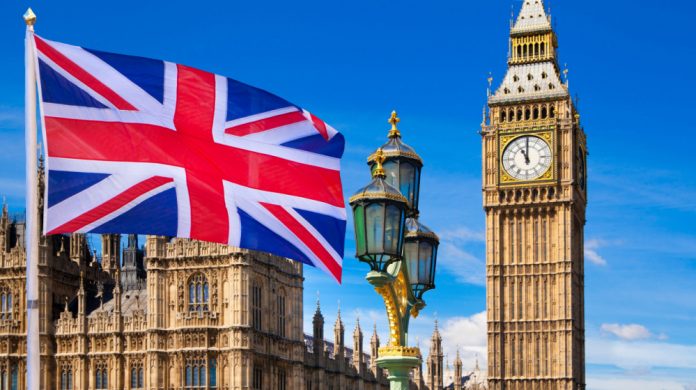Zoë Osmond, CEO of GambleAware, is pushing for a “smooth and stable transition” to the proposed statutory levy on the UK gambling industry so that its “transformational potential” for the gambling harms sector can be realised.
She also believes that the levy will provide “clarity of funding for the gambling harms sector, support long-term planning and prevent duplication of work”, supporting industry collaboration to produce the best system possible for people who need it.
However, GambleAware’s CEO noted that several areas need to be addressed to make sure that the levy and support it provides can be as effective as possible.
The comments from GambleAware follow the conclusion of the Department of Culture, Media and Sport’s now-closed consultation on the proposed gambling statutory levy featured in the UK government’s white paper, which sought opinions on the levy’s structure.
“Following years of uncertainty, the levy will provide clarity of funding for the gambling harms sector, support long-term planning and prevent duplication of work.”
Zoë Osmond, CEO of GambleAware
Osmond said: “GambleAware welcomes the introduction of a statutory industry levy to fund gambling harms research, prevention and treatment. This is something we have long called for and it marks an important step-change in efforts to tackle gambling harms.
“Following years of uncertainty, the levy will provide clarity of funding for the gambling harms sector, support long-term planning and prevent duplication of work.
“We hope this means we can finally move on from the unhelpful distraction of debates about independence and funding, to now focus on working collaboratively to ensure the best system is in place to protect people from harm.”
The CEO noted that the levy has the potential to transform gambling harm prevention and treatment for those at-risk and affected others, but several areas must be addressed to make sure they don’t impact how it can assist those who need it.
“To ensure the levy is as effective as possible, a National Strategy for the Prevention and Treatment of Gambling Harms must be developed to underpin the new system.”
Zoë Osmond, CEO of GambleAware
GambleAware is pushing for a National Strategy for the Prevention and Treatment of Gambling Harms; a single Prevention and Treatment Commissioner or close collaboration amongst commissioners; expertise from the third sector, other stakeholders and those with lived experience; and a smooth and stable transition to the new levy.
Osmond stated: “Firstly, to ensure the levy is as effective as possible, a National Strategy for the Prevention and Treatment of Gambling Harms must be developed to underpin the new system. This is not in the proposals, but without one it will not be possible to transform the capacity and capability and develop an integrated system of prevention and treatment.
“A public health approach is the most effective and cost-efficient way of addressing societal issues like gambling harms. Our preference would be to have a single Prevention and Treatment Commissioner to ensure increased awareness of the issue and equal accessibility of services across England, Scotland and Wales.
“In the absence of this, it is essential that the Treatment and Prevention Commissioners work closely together within an agreed strategic and governance framework, to ensure the system is working as effectively as possible. Retention of the third sector’s expertise and in prevention and treatment will be essential to reduce the strain on NHS services.”
Osmond noted that GambleAware will provide its strategic commissioning skills, experience, capacity and capability to support the commission to help the levy work effectively, including a different funding approach to better support the population across Great Britain.
“In order to have a meaningful impact on gambling harm at a population level across Great Britain, prevention must be reprioritised with additional funding. At a minimum, there should be an equal focus on both prevention and treatment.”
Zoë Osmond, CEO of GambleAware
“In our view, the current proposed funding allocations do not adequately reflect the potential population-level benefits of shifting spend upstream to focus more on prevention and early intervention, which is at the heart of a public health approach.
“In order to have a meaningful impact on gambling harm at a population level across Great Britain, prevention must be reprioritised with additional funding. At a minimum, there should be an equal focus on both prevention and treatment.
“The current definitions of treatment and prevention used in the consultation fail to recognise that prevention is broken into primary, secondary and tertiary approaches which continue through to treatment and care.
“Under the current proposals, important interventions which are usually defined as tier one and tier two prevention, like the National Gambling Helpline, will fall under the remit of the Treatment Commissioner.
“We recommend the co-commissioning of tier one and tier two interventions, including the Helpline, and propose that the delivery of national public awareness campaigns and digital early interventions should be included within the remit of the Prevention Commissioner. This will help ensure increased awareness of the issue and equal accessibility of services across England, Scotland and Wales.”
“A smooth and stable transition to the new system is vital.”
Zoë Osmond, CEO of GambleAware
The GambleAware CEO added that the expertise of the third sector, primary care, the health and social care sector, local authorities, the criminal justice system, and people with lived experience of gambling harm “must be sought”, and it is essential that their voices be heard.
A smooth transition to the new levy as well was a key point made by Osmond too.
She concluded: “Lastly, a smooth and stable transition to the new system is vital. Leaning on the established expertise of the third sector will be critical, and clarity on funding for both GambleAware and the wider sector is urgently needed to prevent any disruption to the existing support and treatment services, which help hundreds of people every day.
“We hope these issues will be addressed so that the transformational potential of the levy can be realised, and we can truly secure a society free from gambling harms.”
Last month, GamCare published a similar statement about the proposed statutory levy, noting that it can represent a “generational shift in the gambling harms sector” if done correctly, while also highlighting concerns about the transition period.











